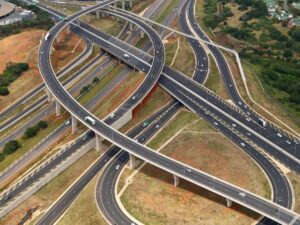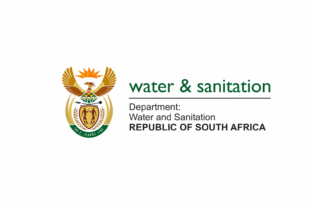The South African Institution of Civil Engineering (SAICE) is deeply concerned by the recent awarding of tenders by the South African National Roads Agency (SANRAL) to joint ventures led by foreign companies.
Four of the five tenders, that were cancelled in June 2022, were awarded following an evaluation process conducted by the Development Bank of Southern Africa (DBSA). Significant concerns raised by SAICE have been detailed in a letter to the President of South Africa, Cyril Ramaphosa (see below) and are as follows:- Were there no South African companies capable of leading and forming part of these joint ventures?
- What will the impact on the economy and the engineering fraternity be as a result of the appointment of foreign firms leading these joint ventures?
- What is the potential negative impact on employment, job creation and skills development for South Africans?
- Will local procurement regulations be complied with in support of local content and the use of locally-sourced materials for these projects?
- Who will provide oversight from the government to ensure compliance with local procurement targets?
We understand that South African tenders usually legislate the use of local materials and labour, requiring that a spend of 30% of the contract is designated to local jobs, and we, therefore, assume that these foreign companies will gain the other 70% of the contract value, up to the amount of R6.65 billion as quoted above.
Further, our members have expressed their deep concerns related to the procurement of local labour and materials in these projects. Can government guarantee that this requirement will be enforced and honoured based on the experiences of foreign firms operating across Africa, which does not suggest this. Mr President, as a businessman, I am aware that you understand the impact of the multiplier effect. Academic literature quotes that the multiplier rates for the construction industry are between 0.5 and 1.3. Therefore, the R6.65 billion that has been awarded to foreign joint ventures could potentially cost this country between R9.9 billion and R15.3 billion. The possible negative impact on job creation and the lack of social upliftment are tremendous. The Reserve Bank (2021) indicates that between 1.7 and 2 formal jobs are generated for every million Rand spent in the construction industry. In applying these figures to the awarded SANRAL tender, between 11 300 and 13 300 jobs may not materialise based on the current tenders awarded. Employment is also critical to the upliftment of households across South Africa. In light of which, with an average household size of 5.18 (2018) persons, the lives of at least between 58 500 and 68 800 people may not improve, and could further deteriorate as a result of potential job losses. It is further disappointing that industry stakeholders, who provide insight and technical expertise, can be ignored in critical decisions impacting infrastructure development in South Africa – we trust that our concerns in this regard will be addressed. On the 1st of July 2022, SAICE met with the SANRAL Board to discuss the negative impact of cancelling the five tenders. Although we promote good governance, of course, we did alert the Board to the impacts of delays and the implication of the tender prices being in the public domain, amongst others. We offered to assist the SANRAL Board, an offer that has not been taken up. As I write this letter, I am deeply saddened by the composition of the joint ventures recently awarded, and the potential cost and impact this will have on the economy and all South Africans – the full extent of which will only be felt in the years to come. In a country so focused on eradicating unemployment, particularly in an industry that drives the development of infrastructure to support future generations – I am deeply concerned for our members and professionals in the built environment, particularly young graduates, as well as local construction companies. SAICE calls on you to start delivering on your promises to enable real change in the infrastructure environment that will positively impact South African society at large. Yours faithfully, Professor Marianne Vanderschuren PhD CEngSAICE President 2022







